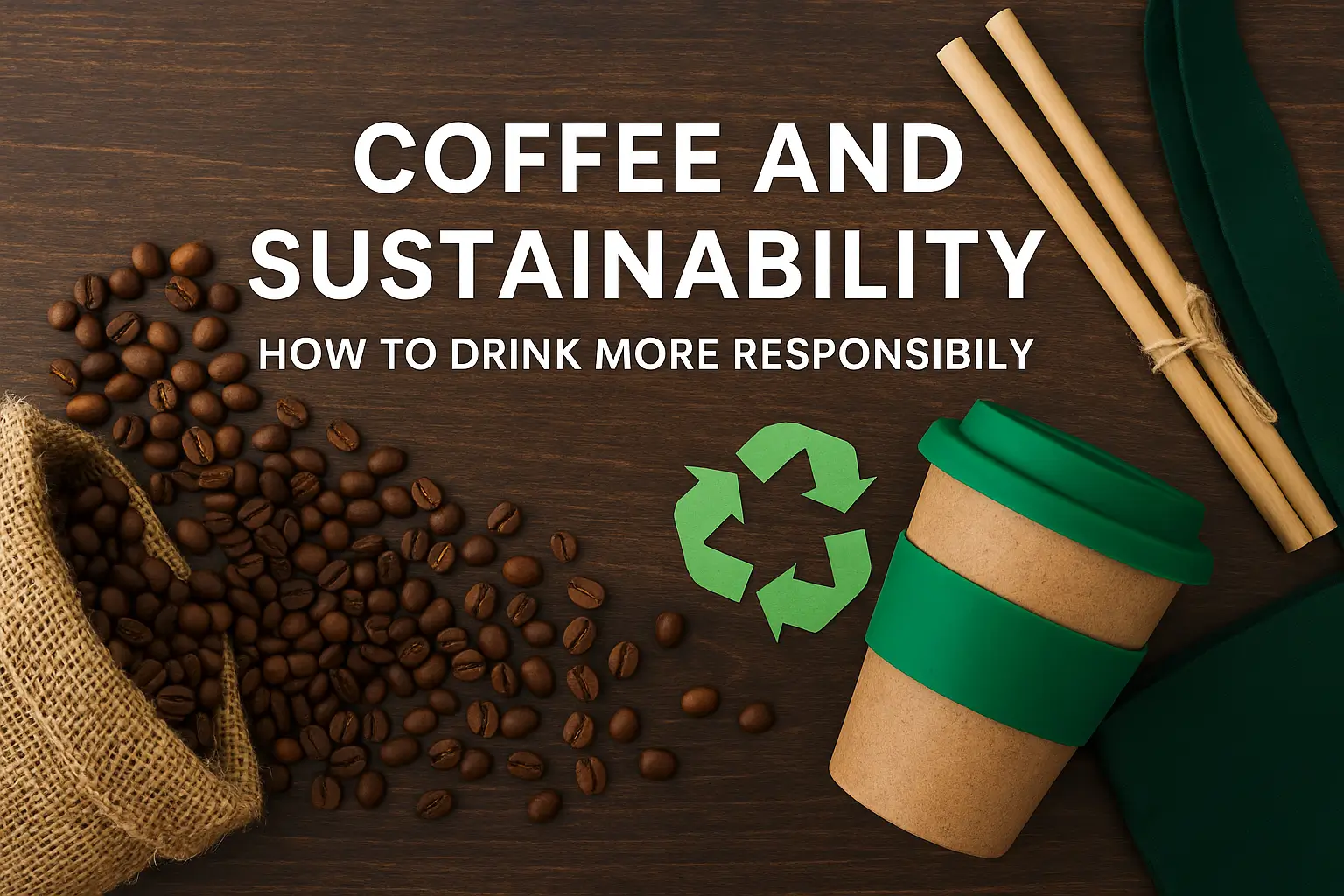Every time you sip a cup of coffee, you’re participating in a global supply chain that stretches from remote mountain farms to your favorite café. But while coffee is a source of comfort and energy for billions, its production can have serious environmental and social impacts.
In this article, we’ll explore the challenges facing the coffee industry and offer practical tips on how you can make your coffee habit more sustainable — without sacrificing flavor or convenience.
The Environmental Cost of Coffee
1. Deforestation
To meet global demand, some coffee producers clear forests to plant more crops, leading to:
- Loss of biodiversity
- Soil erosion
- Disrupted ecosystems
This is especially common in regions without strong environmental regulations.
2. Water Consumption and Pollution
Coffee processing — especially the washed method — uses large amounts of water. If wastewater is not treated, it can pollute local streams and rivers.
3. Pesticides and Chemical Use
Non-organic coffee farms may rely heavily on:
- Synthetic fertilizers
- Pesticides
- Herbicides
These chemicals harm the soil, water systems, and even farm workers.
4. Carbon Footprint
From shipping beans across oceans to disposable coffee cups, the coffee industry contributes to carbon emissions at every stage.
Social Challenges in Coffee Farming
Most of the world’s coffee is grown by smallholder farmers in developing countries. Many face:
- Unstable income
- Market fluctuations
- Exploitation by middlemen
- Lack of access to education and healthcare
In some regions, labor violations and even child labor remain ongoing issues.
Certifications That Support Sustainability
1. Fair Trade Certified
- Ensures farmers are paid a minimum price
- Promotes ethical labor practices
- Supports community development projects
2. Organic Certified
- No synthetic pesticides or GMOs
- Emphasizes soil and water conservation
- Encourages natural pest control
3. Rainforest Alliance
- Combines environmental, social, and economic standards
- Promotes shade-grown coffee
- Supports wildlife protection
4. Direct Trade
- Roasters buy coffee directly from farmers, often at higher prices
- Promotes transparency and quality-driven relationships
How to Be a More Sustainable Coffee Drinker
1. Choose Ethically Sourced Beans
Look for certifications or direct trade relationships when buying beans. Specialty roasters often provide details about:
- Farm or cooperative name
- Growing practices
- Roast date
2. Buy Whole Bean and Grind at Home
Whole beans stay fresh longer, reducing waste from spoiled coffee. Plus, you can tailor the grind size to your brew method.
3. Brew at Home More Often
Home brewing:
- Saves energy compared to industrial machines
- Reduces the use of single-use cups and lids
- Gives you full control over portion size and waste
4. Use a Reusable Coffee Cup
If you buy coffee to-go, invest in a reusable cup. Many cafés even offer discounts for bringing your own.
5. Compost Your Coffee Grounds
Used coffee grounds are rich in nitrogen and make excellent compost. You can also use them as:
- Fertilizer for plants
- Natural deodorizer
- Scrubbing agent for cleaning
6. Reduce Pod Use
Single-use coffee pods are convenient but often non-recyclable. Consider:
- Refillable pods
- Biodegradable options
- Switching to manual brewing methods
7. Support Local Roasters
Local roasters often:
- Source responsibly
- Roast in small batches
- Provide transparency about origin
This supports your community and lowers transportation emissions.
Brew Methods That Are More Eco-Friendly
| Brew Method | Sustainability Notes |
|---|---|
| French Press | No filter waste, reusable metal parts |
| Pour Over | Uses compostable paper filters |
| AeroPress | Minimal waste, reusable filters available |
| Moka Pot | Long-lasting, no filters needed |
| Espresso Machine | High energy use, but low water waste |
| Pod Machines | High waste (unless using refillable pods) |
Coffee Packaging: What to Look For
- Compostable or recyclable bags
- Bags with one-way valves and no metal lining
- Bulk buying to reduce packaging waste
- Refill programs at your local roastery
Final Thoughts: Small Sips, Big Impact
Sustainability in coffee isn’t just about certification labels or complex policies — it’s about making thoughtful choices every day. From how you shop and brew, to how you dispose of your grounds, you have the power to make your coffee routine more eco-friendly and ethical.
Start small. Choose beans with a story. Bring your own cup. Support farmers and roasters who care. The planet — and your coffee — will thank you.
